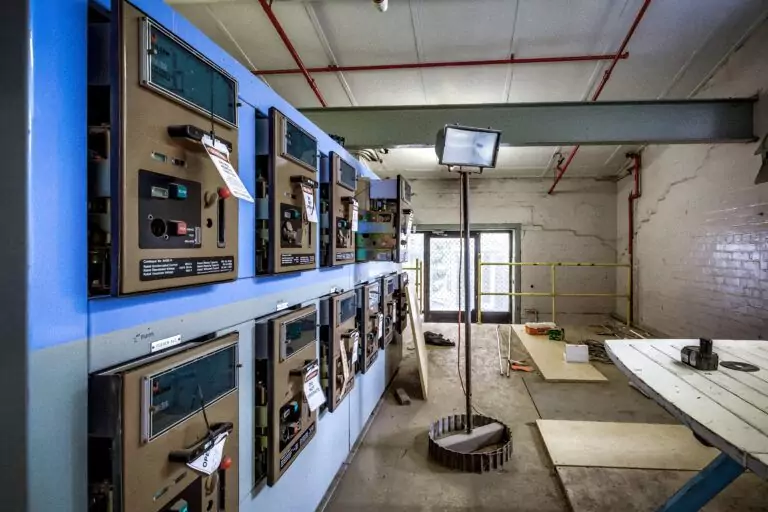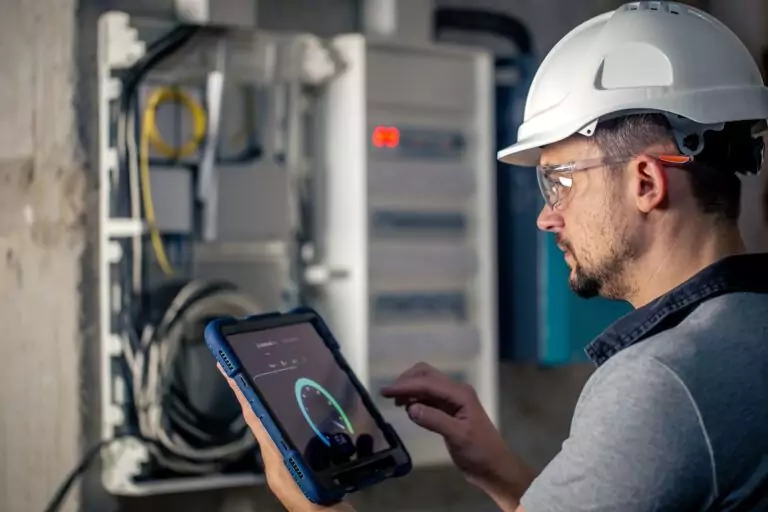Are you an instrumentation and control engineer wondering where your skills can take you? The world of engineering is vast and diverse, offering a plethora of career paths that might just align with your passions and expertise. From the traditional realms of process industries and the ever-evolving oil and gas sector to the cutting-edge fields of renewable energy and automation, the opportunities are as varied as they are exciting.
Whether you’re drawn to the intricacies of manufacturing, the innovation of research and development, or the strategic challenges of consulting and project management, there’s a niche for you. And let’s not forget the vital roles in education, maintenance, sales, and technical support that keep the industry moving forward. As we explore the primary available career paths for Instrumentation and Control Engineers, remember that each path not only demands a unique set of skills but also offers the opportunity to make a significant impact.
So, buckle up and let’s explore the myriad ways you can shape your career and, perhaps, the future of engineering itself.
What Are the Primary Career Paths Available for Instrumentation & Control Engineers?
Instrumentation and Control Engineering, a specialised branch of electrical and electronics engineering, focuses on the design, development, and maintenance of systems that control and monitor machinery and processes. Professionals in this field play a crucial role in ensuring the efficiency, reliability, and safety of industrial operations. The primary career paths available for Instrumentation and Control Engineers encompass a variety of industries and roles, reflecting the broad applicability of their expertise.
- Process Industries: One of the most traditional and significant employment areas for these engineers is in process industries such as chemical, petrochemical, pharmaceutical, and food and beverage. Here, they design and maintain systems that control the processing of materials and ensure quality control.
- Oil and Gas Sector: Instrumentation and Control Engineers find substantial opportunities in the oil and gas industry, where they work on systems that control the drilling, production, and refining processes. Their role is pivotal in optimising extraction processes and ensuring safety in highly hazardous environments.
- Energy Sector: With the growing emphasis on sustainable and renewable energy, these engineers are increasingly involved in the energy sector, including power plants, solar energy, and wind energy projects. They contribute to the development and maintenance of systems that ensure efficient power generation and distribution.
- Manufacturing: The manufacturing industry, including automotive, aerospace, and electronics, relies on automation and control systems to enhance productivity and quality. Instrumentation and Control Engineers design and implement these systems, ensuring they meet the specific needs of each manufacturing process.
- Research and Development: For those inclined towards innovation, a career in research and development offers the chance to work on cutting-edge technologies in control systems and instrumentation. This path often involves collaboration with multidisciplinary teams to develop new products or improve existing technologies.
- Consulting and Project Management: Engineers with experience in instrumentation and control can also pursue careers in consulting and project management, offering expertise to a range of industries on designing, implementing, and optimising control systems.
- Education and Training: There is also a demand for these professionals in academic and training institutions, where they educate the next generation of engineers and technicians on the principles and applications of control and instrumentation engineering.
Instrumentation and Control Engineers have a diverse range of career paths available to them, each offering unique challenges and opportunities. Their ability to design and manage complex systems is critical across many sectors, underscoring the importance of their role in the modern industrial landscape.
Design and Development Engineering
Focused on creating new control systems, Design and Development Engineering is a pathway where professionals use their expertise to design, prototype, and test innovative systems. This role is crucial for advancing the functionality and efficiency of control and instrumentation technology, ensuring that new systems can meet the evolving demands of various industries.
Project Engineering
Managing projects from conception to completion, Project Engineering involves the comprehensive management of projects. Professionals in this area are responsible for planning, coordinating, and overseeing the implementation of projects, ensuring they are completed on time, within budget, and to the required quality standards. This role requires a blend of technical knowledge and project management skills, making it essential for the successful execution of engineering projects.
Maintenance Engineering
Focused on ensuring systems operate efficiently and safely, Maintenance Engineering is vital for the longevity and reliability of control systems and machinery. This career path emphasises the routine inspection, servicing, and repair of systems, aiming to minimise downtime and extend the operational life of equipment. Maintenance engineers are key to maintaining the productivity and safety of industrial operations.
Sales and Technical Support Engineering
Providing technical advice and product support, Sales, and Technical Support Engineering roles bridge the gap between technical expertise and customer needs. Professionals in this field use their in-depth knowledge of control systems and instrumentation to assist with product selection, troubleshooting, and application advice. This career path is ideal for those who excel in communication and are driven by solving customer challenges.
Research and Development
Innovating new technologies and applications, Research and Development (R&D) in the field of Instrumentation and Control Engineering is at the forefront of technological advancement. R&D engineers work on developing new systems, improving existing technologies, and finding novel solutions to complex problems. This career path is suited to those with a passion for innovation and a desire to push the boundaries of what is possible in control engineering.
What Skills Are Essential for Success in These Paths?
To thrive in the diverse career paths of Instrumentation and Control Engineering, certain skills stand out as indispensable:
These core skills form the foundation for a successful career in Instrumentation and Control Engineering, addressing the industry’s evolving demands and technological advancements with competence and confidence.
Technical Proficiency in Control Systems
Mastering control systems is essential. It involves a comprehensive understanding and application of technologies critical for monitoring and managing industrial processes.
Knowledge of PLCs, SCADA, and DCS
Proficiency in Programmable Logic Controllers (PLCs), Supervisory Control and Data Acquisition (SCADA), and Distributed Control Systems (DCS) is crucial. These form the backbone of industrial automation, enabling efficient process control.
Understanding of Regulatory Standards
A solid understanding of regulatory standards is essential for ensuring that engineering practices comply with safety and quality requirements. This knowledge safeguards projects and personnel against compliance risks.
Familiarity with ISO, ANSI, and Other Relevant Standards
Knowledge of international (ISO) and national (ANSI) standards is important for global compliance and operational excellence across engineering projects.
Project Management Skills
Effective project management encompassing the oversight of projects, leadership of teams, and budget management is key to completing projects efficiently, on time, and within budget.
Ability to Lead Teams and Manage Budgets
Leading teams and managing financial resources are critical competencies for successful project execution and resource optimisation.
Communication and Teamwork Abilities
Strong interpersonal and presentation skills are essential for collaborative work with multidisciplinary teams and for communicating complex information in a clear and accessible manner.
Effective Interpersonal and Presentation Skills
The ability to interact effectively with colleagues and stakeholders, coupled with the skill to present ideas and information clearly, is indispensable for advancing Instrumentation and Control Engineering.
How Does One Advance in an Instrumentation & Control Engineering Career?
Advancing in an Instrumentation & Control Engineering career involves a strategic and multifaceted approach:
Gain Professional Certification
Achieving a PE license or ISA certification is crucial for demonstrating expertise and commitment to the highest standards in the field.
Pursue Further Education
Elevating one’s qualifications with a master’s degree in engineering or business administration expands knowledge and opens avenues for leadership roles.
Specialise in a Niche Area
Targeting specialised sectors, such as oil and gas or pharmaceuticals, enables engineers to become invaluable experts in areas of high demand.
Develop Leadership and Management Skills
Investing in leadership training and seeking out mentorship experiences prepares individuals for roles of greater responsibility, charting a path for career advancement.
What Are the Emerging Trends Affecting These Career Paths?
Emerging trends significantly shaping the career paths in Instrumentation & Control Engineering include:
These trends not only influence the demand for specialised skills but also open new avenues for innovation and career development in the field.
Automation and Robotics
The increased demand for automation solutions is driving innovation, enhancing efficiency, and ensuring safety across various industries, making proficiency in this area highly valuable.
Renewable Energy
Significant opportunities in solar and wind energy projects highlight the shift towards sustainable and renewable energy sources, demanding specialised skills in these technologies.
Internet of Things (IoT)
The integration of IoT in control systems is revolutionising the field, enabling smarter, more efficient, and interconnected operations transforming how systems are designed and managed.
Cybersecurity in Industrial Control Systems
Protecting systems against cyber threats has become crucial, emphasising the importance of cybersecurity measures in safeguarding critical infrastructure, requiring engineers to be adept in security protocols.
Charting a Future in Control Engineering
Instrumentation and Control Engineering offers a wide spectrum of career opportunities, each demanding a unique blend of technical knowledge, adaptability, and forward-thinking. From traditional industries to emerging technologies and renewable energy, the field is evolving rapidly, driven by trends such as IoT, automation, and cybersecurity. Success in this dynamic landscape requires continual learning, specialised skills, and strategic career development.
At Vista Projects, we help shape careers by delivering integrated engineeringThe process of integrated engineering involves multiple engineering disciplines working in conjunction with other project disciplines to e... solutions that span the full spectrum of control systems from design and implementation to digital transformation. Our commitment to innovation and quality creates opportunities for engineers to thrive in complex, high-impact projects.
Looking to take the next step in your Instrumentation & Control career? Connect with Vista Projects and discover how your skills can power the future.









